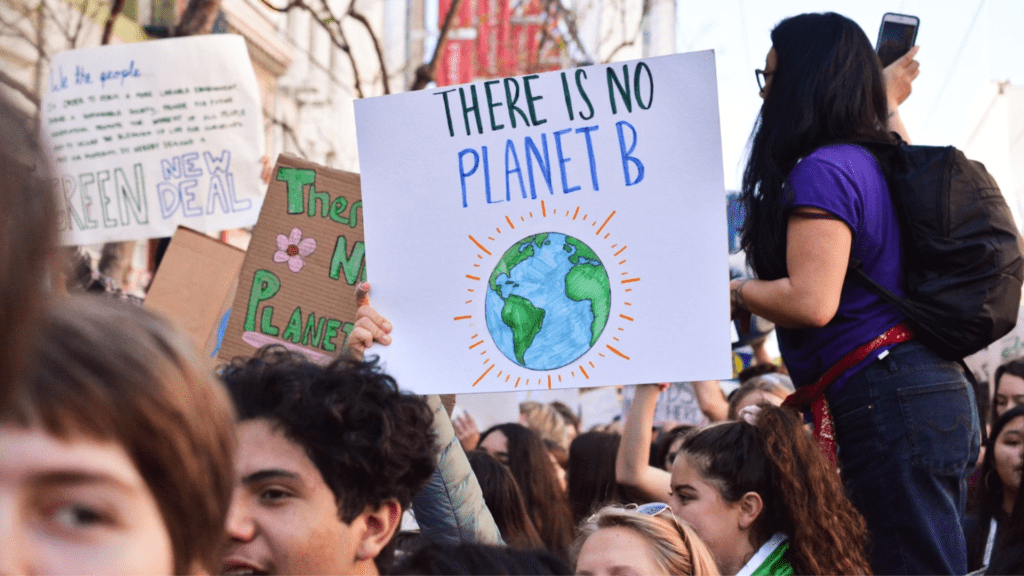Major Developments in Climate Action

Climate change remains one of the most pressing global challenges, with far-reaching consequences for ecosystems, human health, and economies. The increasing frequency of extreme weather events, rising sea levels, and the loss of biodiversity have raised alarms worldwide. As the effects of climate change intensify, governments, businesses, and communities have made significant strides in taking climate action to reduce greenhouse gas emissions, promote sustainability, and enhance climate resilience. This article explores some of the major recent developments in climate action.
Global Agreements and Commitments
International cooperation plays a central role in addressing climate change. The Paris Agreement, adopted in 2015, is one of the most significant milestones in global climate policy. Almost 200 countries pledged to limit global warming to well below 2°C above pre-industrial levels and pursue efforts to limit the increase to 1.5°C. Nations also committed to reaching net-zero emissions by the second half of the century. Since then, many countries have strengthened their climate pledges.
In 2021, the United States rejoined the Paris Agreement under President Joe Biden, signaling renewed commitment to addressing climate change. The European Union continues to lead the way with initiatives like the European Green Deal, aiming for carbon neutrality by 2050. These efforts have shown a collective determination to take urgent action to combat climate change, even as challenges remain.
The 2021 United Nations Climate Change Conference (COP26) in Glasgow reinforced the importance of climate action, although it was met with mixed reactions. The conference saw pledges to cut methane emissions, phase out coal, and provide financial support to developing countries. Despite some disagreements, the conference highlighted the need for more immediate and coordinated efforts to address climate change at the global level.
The Growth of Renewable Energy
Renewable energy has seen remarkable progress in recent years, driven by technological advancements and cost reductions. Solar and wind power, in particular, have become increasingly affordable, making them competitive with fossil fuels in many regions. According to the International Renewable Energy Agency (IRENA), renewable energy accounted for nearly 80% of new power capacity additions in 2020.
Solar power, once considered expensive, has seen significant cost declines due to improved technology and economies of scale. Wind energy, including both onshore and offshore wind farms, has also expanded rapidly. Countries like China, the United States, and the United Kingdom have invested heavily in wind energy, making it one of the fastest-growing sources of clean electricity. Offshore wind farms, in particular, hold great potential, with countries like Denmark and the UK leading the way.
Battery storage technology has advanced as well, allowing renewable energy to be stored during periods of high production and used when demand is high. This helps to address the intermittent nature of solar and wind power, making them more reliable as energy sources. As energy storage technology continues to improve, the potential for renewable energy to replace fossil fuels on a large scale increases.
Corporate Involvement and Sustainability Goals
The private sector has also played a significant role in driving climate action. Many major corporations are now focusing on sustainability as part of their long-term strategies. Companies in energy-intensive sectors such as technology, manufacturing, and transportation have made bold commitments to reduce emissions. For instance, tech giants like Google, Microsoft, and Apple have pledged to reach net-zero emissions by 2030 or sooner, while others are focusing on transitioning to renewable energy sources and improving energy efficiency in their operations.
The financial sector has been increasingly focused on the climate crisis, with investors pushing for climate-conscious investments. Financial institutions are now incorporating environmental, social, and governance (ESG) criteria into their decision-making processes. In fact, the growing demand for sustainable investments is leading to greater transparency in climate-related financial disclosures. The Task Force on Climate-related Financial Disclosures (TCFD) is helping to guide companies in disclosing their climate risks, which in turn allows investors to make more informed decisions.
Despite progress, “greenwashing” remains a concern, where companies make exaggerated or misleading claims about their environmental efforts. To combat this, stronger regulations and more robust standards for corporate climate action are being called for to ensure that companies take genuine steps toward sustainability.
Local Action and Grassroots Movements
While international agreements and corporate commitments are vital, local action also plays a crucial role in addressing climate change. Cities worldwide are leading the charge by adopting policies that promote sustainability and reduce carbon footprints. Urban areas are focusing on improving public transportation, developing energy-efficient buildings, and increasing green spaces to create climate-resilient communities.
For example, cities like Copenhagen and Amsterdam are investing heavily in clean energy infrastructure and sustainable urban planning to achieve carbon neutrality. Similarly, in countries with limited resources, local communities are developing adaptive strategies to deal with climate impacts, such as floods and droughts. Small island nations, in particular, are focusing on building resilience against rising sea levels.
Grassroots movements, particularly led by youth, have also been a driving force in raising awareness about climate change and pushing for stronger policies. Global movements like Fridays for Future, led by Swedish climate activist Greta Thunberg, have mobilized millions of young people to demand action from world leaders. These movements emphasize the urgency of addressing climate change and empower individuals to take action in their own communities.
Challenges Ahead
Despite the progress made, many challenges remain in the global effort to combat climate change. The continued reliance on fossil fuels remains a significant barrier, particularly in countries with economies deeply dependent on oil, coal, and natural gas. Transitioning to clean energy requires substantial investments in infrastructure, technology, and workforce development.
Financial constraints also pose a challenge, particularly for developing nations that lack the resources to implement climate adaptation measures. Climate finance, including funding for clean energy projects and resilience building, is crucial to ensuring that all nations, especially those most vulnerable to climate change, can address its impacts.
Political resistance is another obstacle. In some countries, there is a lack of political will to implement strong climate policies, often due to economic interests or concerns about job losses in high-carbon sectors. Overcoming these barriers requires a unified global effort and more robust climate governance at both the national and international levels.
Conclusion
The global response to climate change has made significant strides in recent years, but much work remains to be done. From international agreements like the Paris Agreement to the rapid expansion of renewable energy technologies, climate action is gaining momentum. The private sector’s growing commitment to sustainability, combined with local and grassroots movements, provides hope for a greener future.
However, achieving the necessary reductions in emissions and preparing for the impacts of climate change will require continued collaboration and effort across all sectors of society. With urgent and sustained action, it is possible to mitigate the worst effects of climate change and create a sustainable, resilient world for future generations.




